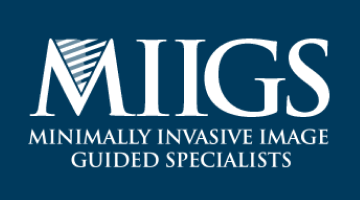Tips to Speed Recovery After Interventional Radiology Surgery
Thanks to continual advances in medical science, patients today are able to receive surgical treatment that is incredibly precise, minimally invasive and quick to heal. However, even for these new less invasive surgical procedures, such as interventional radiology surgery, there is still much patients can do to speed up and improve their own surgery recovery.
Follow post-op instructions exactly as directed.
Whether you have received minimally invasive vein treatment or another type of interventional radiology surgery, your procedure does not end when you arrive back home following surgery. It is vital that you follow your post-operative instructions in order to experience the best and fastest results from your procedure. If you are placed on movement or driving restrictions, be sure to adhere to those until your surgeon releases you – this is for your own safety and the safety of others. Also, if your surgeon has ordered prescriptions for pain management or other issues, be sure to fill those prescriptions and take them as directed.
Eat and drink with a recovery focus.
Your post-op instructions may or may not include dietary restrictions depending on what kind of procedure you needed. However, whether or not you are instructed in what to eat, you want to be sure that the food and drink you choose during your recovery will nourish your body towards a fast and full recovery.
Some patients do report feeling nausea, constipation, fatigue or other very normal temporary discomforts. However, it is still important to do your best to nourish and hydrate your body following surgery. To help ease any discomforts, avoid very sugary or salty foods, processed foods and sports drinks or highly caffeinated/sugary drinks. Instead, choose whole natural foods including protein, complex carbohydrates (whole grains with fiber), vitamin C, probiotics, iron and B12 supplements (such as fish or eggs) and leafy greens and nourishing fruits. Stay hydrated with pure water, electrolyte water as needed and nourishing natural juices and teas. Also, if you smoke, now is a great time to quit!
Show up for all your post-operative appointments.
Even if you feel much better each day following your surgery, remember this is one of the benefits of interventional radiology. However, it does not mean you don’t need to go to your follow-up appointments! Regardless of whether or not your procedure required internal incisions, your vein specialist will need to visually examine the surgical site. Follow-up blood work may also be done to ensure your healing and recovery is proceeding just as it should be.
Start moving, but don’t overdo it!
Your surgeon will likely want to see you up and moving about as soon as you are able to walk following your procedure. The more quickly you can start taking short walks every hour or two, the less at risk you will be from complications such as deep vein thrombosis (blood clots), pneumonia, extended constipation and other potentially serious issues. But keep walks short, and if at all possible ask for assistance from a loved one both during walks and for taking care of more intense daily tasks so you can avoid strain, pain or internal bleeding as your body heals. Also, be aware of your pain levels so you can take any prescribed or OTC medications before the pain becomes unmanageable.
What to look for in an Interventional Radiology (IR) specialist
Interventional radiology offers a wonderful new alternative to the more invasive procedures of decades past. Many patients especially appreciate that most interventional radiology procedures can be performed on an outpatient basis in the specialist’s office and do not require general anesthesia. Because these procedures are minimally invasive and usually come with less risk attached, patients also gratefully report less pain and a shorter recovery time.
When choosing an interventional radiology varicose vein specialist or other IR specialist, you should also look for a practice that holds certifications in interventional radiology, has the ability to see you quickly and is accessible 24/7. One such facility, located in Alexandria, Louisiana, is Minimally Invasive Image Guided Specialists (MIIGS). MIIGS is the only interventional radiology clinic in Central Louisiana.
About Minimally Invasive Image Guided Specialists (MIIGS)
If you have questions or are experiencing symptoms related to leg pain, call MIIGS at (318) 445-9700 or submit an online form today to schedule a consultation or for more information.
THE SERVICES LISTED ON THIS WEBSITE ARE FOR GENERAL INFORMATION PURPOSES ONLY AND DO NOT INCLUDE ALL SERVICES OF MINIMALLY INVASIVE IMAGE GUIDED SPECIALISTS. WHILE WE STRIVE TO KEEP THE INFORMATION UP TO DATE AND CORRECT, WE MAKE NO REPRESENTATIONS OR WARRANTIES OF ANY KIND, EXPRESS OR IMPLIED, ABOUT THE CONTENT, COMPLETENESS, ACCURACY, RELIABILITY, LEGALITY, SUITABILITY OR AVAILABILITY, WITH RESPECT TO THE SERVICES CONTAINED ON THIS WEBSITE.
